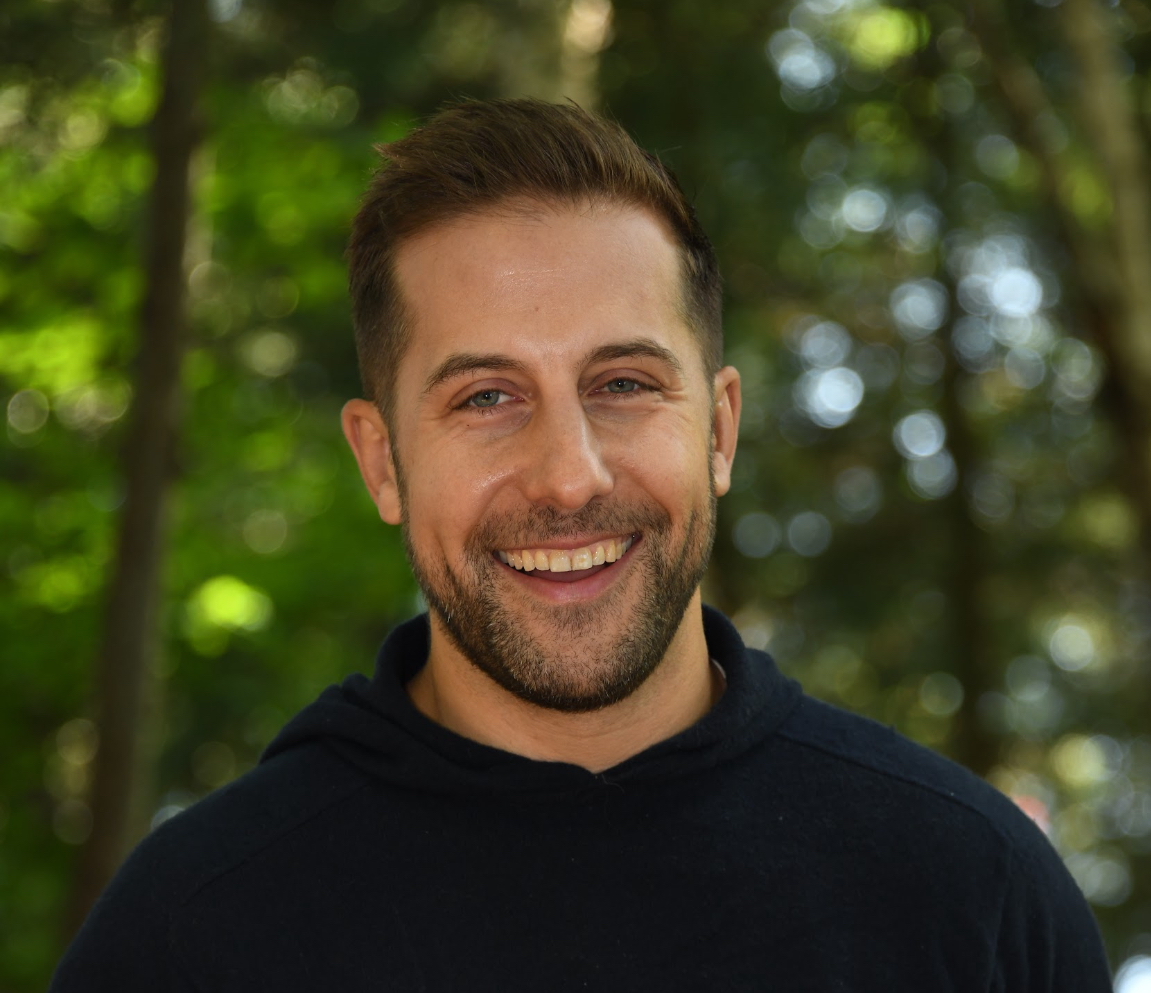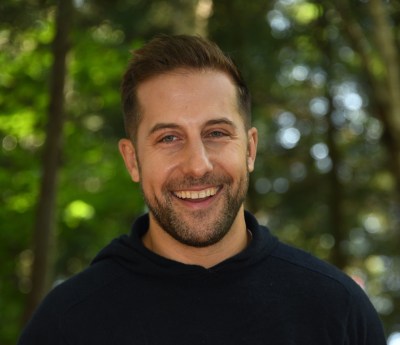Happy Sunday, and I hope you all have been having a wonderful Fourth of July weekend. Thank you for all your thoughtful questions and curiosity about the business side of The Dispatch.
Let’s get to the answers!

Lehmand: Has anyone ever told you that you look like Alex Smith, the retired NFL quarterback?
Yes, and their attitude toward me tended to vary based on how well he was doing on the Niners. I recently had shoulder surgery, so I will not be throwing footballs for at least another nine months.
How has the experience of running a parenting media company as a single, non-dad compared to spending the first year of actual fatherhood at The Dispatch?
DJ Elmore: What have you underestimated so far about being a dad?
In retrospect, it feels like being a virgin publisher of Playboy. I knew well enough at the time that I couldn’t be consumer-facing, so instead we had editors who mostly served that purpose. The company’s mission—helping men raise great kids while leading fulfilling adult lives—still deeply resonates. But at a professional level, I approached each day as an attention merchant honing his craft.
For as many articles as we had on the subject, I don’t think I’ve appreciated how physically demanding fatherhood would be, which could also be a product of having a kid a little later in life. I’ve also spent the last several months rehabbing that surgically repaired shoulder, which makes me think of that Ginger Rogers line about dancing with Fred Astaire.
For as much as my wife and I discussed our expectations going into parenthood, I’ve come to more deeply appreciate the difference between equity and equality when it comes to parenting. For as much as we want to be 50/50, babies—or at least our baby—need their mom at this age in a profoundly different way than they need their fathers, which means most of the time I’m just the janitor at NASA helping my wife get to the moon.
While Fatherly’s work-life integration content was also popular with readers, part of me always thought, Well, come on, how hard is that really? Answer: very hard. I’ve always been someone who’s tried to cram 36 hours into a 24-hour day, and this year has rendered that impossible. Things have to give, and often this comes down to first principles: What’s most important? Family comes first; work, time with friends, hobbies, recreation, and fitness lose standing. Those who do well through this period a) realize that this is temporary and b) don’t tether as much of a sense of identity to the things that you need to leave behind.
Lastly, I don’t think I appreciated how profoundly musical this time is. I’ve sung more songs and invented more songs in this last year than on every road trip I’ve ever taken combined. My latest is a ditty about how my best friend is a one-year-old.
What are the key differences between being an adviser to The Dispatch and being a day-to-day operator?
The primary distinction is that now the buck stops here. As an adviser, you provide counsel with a take-it-or-leave-it remove; as an operator, you realize the advice is only as good as the execution. The difference between a plan and its implementation is the difference between looking at a map and actually hitting the road.
Richard Kennedy: What do you see as The Dispatch’s place in media 10 years from now? Five years?
The Dispatch has had several advantages from the outset that will continue to serve the business moving forward. For one, subscription models are always good businesses, especially in media, because you have recurring revenue and you don’t have the concentration risk that you have in pure advertising-based businesses. Also, in a world of infinite content, advertisers are no longer incentivized to make long-term commitments with publishers because there will always be a shiny new bauble around the corner. Marketers are rewarded for innovative thinking, not just eking out efficiencies with the same partners year over year.
The Dispatch also has incredibly healthy founder dynamics. Most founder relationships fray or fail, particularly after five years. Founders typically have a higher divorce rate than the national average; you just don’t hear about it as much because companies are incentivized to keep that hush-hush. The Steve and Jonah dynamic that you see in Town Halls and on podcasts should be taken at face value, and that shared sense of mission, vision, and overall deep compatibility is a competitive advantage.
In terms of how I think about the future, I think we’ll want to build on the existing membership framework, adding to the current bundle in the form of national and local events, new subject areas, and new personalities, much as we have over the last 5+ years. For those who have been with us since the beginning, you’ve seen the value in your membership grow tenfold in terms of the amount of journalism and analysis you now have access to versus when we started.
DJElmore: I’m going to have to bite on the question of what media business founders tend to underestimate.
Most founders vastly underestimate the amount of work required just to get to the starting line. The amount of time and energy it takes to go from the proverbial “0 to 1” is often the same as what it takes to go from “1 to 10.” You don’t know what you don’t know, and the capital markets and the talent market respond accordingly. Once you have product-market fit, your success often feels as inevitable as your original concept felt silly to everyone at the time. You can’t hold that against anybody; you just have to keep building.
Rick Henderson: Since The Dispatch is a commercial enterprise, how do you make a pitch to investors who may not see a tangible return right away?
We’re fortunate that we only had one round of financing in 2019, which is unusual for most start-up businesses, who typically raise money in 18-month increments. Our pitch was as much mission-oriented as it was commercial: Hey, this ought to exist; it’s good for the country, good for our collective information diets, and we can serve a broad audience of people who either agree with us or are at least interested in what we have to say. Should we ever seek additional financing to accelerate our growth (this is not on our immediate roadmap), it’s easy to imagine that our pitch would be largely the same.
Mary: What part of running The Dispatch is your favorite “to do,” and what do you absolutely dread having to do but have no choice?
I can’t think of anything that I actually dread doing. In terms of favorite to-dos, two general ideas come to mind.
The first is that running a business is often a practice of experimentation: evaluating available data, blending analysis with a hunch borne from experience, gathering outside consultation, developing a hypothesis, taking a risk, running a test, and drawing conclusions. The acquisition of SCOTUSblog ran along that path, and so far it seems to be a great success.
The second is that running a business starts and ends with having talented and motivated people. The benefit of joining last year is that the business team had a relatively blank slate, and it’s been a genuine pleasure recruiting great people who love the product, see its potential, and want to invest their time and energy at pivotal moments in their careers to make The Dispatch a success.
H.W.: I’m curious, what did you do when you worked with Conan O’Brien? What was he like to work with? What did you take from that experience to your work at The Dispatch?
One of the best jobs I ever had was a script-writing internship for Conan back when he had the 12:30 a.m. slot after Jay Leno. I was in college, and I was considering pursuing a career in entertainment. I had written several plays and some comedic personal narratives, and submitted them to the writing team at Conan going into my junior year. I got the gig, and my job was to shadow Conan and the writers around all day, helping to convert ideas into reality.
In practice, that meant getting legal approval on scripts (“Will Standards and Practices let us say that?”), helping to recruit talent (“We’ve gotta find Abe Vigoda and a donkey by 4 o’clock”) to coordinating with the costume department and the cue-cards guys. Every day felt like being at the circus, and we had to do whatever we could to go out there and put on a great show. For a 20-year-old kid—but also for anybody—this was thrilling. This was “show business.”
While I have yet to wrangle Jonah and a donkey for a G-File, I learned the fine art of talent management. Talented people—or “Talent,” as we say in “The Biz”—will always have demands on their time. Your job on the business side is to remove as many impediments as possible to gain commitments.
Publishing, like late-night shows, is also in the habit formation business, so you learn what it takes to produce the best product possible within the time constraints you have.
What would you do if you weren’t working at The Dispatch?
The short answer is playing with my son, but the longer answer is that I continue to invest and advise various business-to-consumer and business-to-business companies both within the media space and outside of it. Seeing thousands of company presentations, business models, and quarterly reports gives you perspective and an appreciation for what good businesses look like and how they operate.





Please note that we at The Dispatch hold ourselves, our work, and our commenters to a higher standard than other places on the internet. We welcome comments that foster genuine debate or discussion—including comments critical of us or our work—but responses that include ad hominem attacks on fellow Dispatch members or are intended to stoke fear and anger may be moderated.
With your membership, you only have the ability to comment on The Morning Dispatch articles. Consider upgrading to join the conversation everywhere.